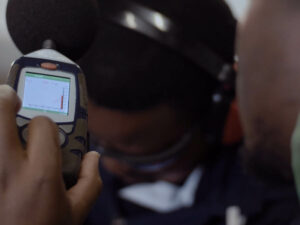
Quality Management Systems and the Impact on Approved Inspection Authorities
The implementation, growth and sustainment of a Quality Management System, such as ISO/IEC 17020 within an Occupational Hygiene Inspection Body has significant benefits that can have a positive impact on the work produced as well as the competence of the inspectors who undertake the various inspection activities.
The ISO/IEC 17020 Quality Management System in particular has several key aspects that are essential for ensuring consistent, high-quality work:
Consistency and Standardisation
Quality Management Systems provide a structured framework for standardising work procedures and ensure consistency in how Occupational Hygiene Inspections are carried out.
Compliance with Regulations
South Africa has regulations and standards related to Occupational Hygiene. The ISO/IEC 17020 Quality Management System ensures that the inspection body meets and maintains compliance with these regulations and standards. It further ensures that the inspection services and results offered to our clients comply with these regulations and standards.
Risk Management
The system emphasises that all aspects of an inspection body’s activities are done in an impartial manner. The system ensures that any potential risks to impartiality are identified and that the Approved Inspection Body is properly equipped to identify, manage and mitigate these risks.
Data Collection and Analysis
A well-implemented Quality Management System ensures that the inspectors sent out to conduct inspections are competent in not only the collection of field data but also the interpretation and analysis of the data collected. This ensures that the results provided to the client are accurate and properly interpreted, thereby enabling the inspection body to properly make recommendations in order to protect and improve work health.
Continuous Improvement
It is vital within an organisation that there is a culture that encourages continuous improvement not only of its staff but of the system as well. The ISO/IEC 17020 Quality Management System ensures that an inspection body is constantly striving to enhance its occupational hygiene practices.
Documentation and Traceability
At the end of the day, clients need to be provided with results that are accurate, reliable and traceable. The ISO/IEC 17020 Quality Management System emphasises the importance of proper documentation of all inspection activities and results. This documentation is crucial for audits, reporting and trackability. It’s the cornerstone in ensuring the final product provided to clients is one of high quality and meets all legislative requirements.
Resource Optimisation
A Quality Management System can assist in the allocation of resources more effectively by focusing on areas that have the most significant impact on the inspection activities of the Approved Inspection Bodies. This can lead to cost savings, resource optimisation and proactive training of inspection staff.
Quality Management Systems are essential in an Occupational Hygiene Inspection Body as they provide a structured approach to ensuring accurate, reliable and traceable results. They further ensure the impartiality of the inspection body as well as the continuous development not only of inspectors but of the system as well.
Apex Environmental is in full compliance and adheres to the requirements of the ISO/IEC 17020 Quality Management System.








